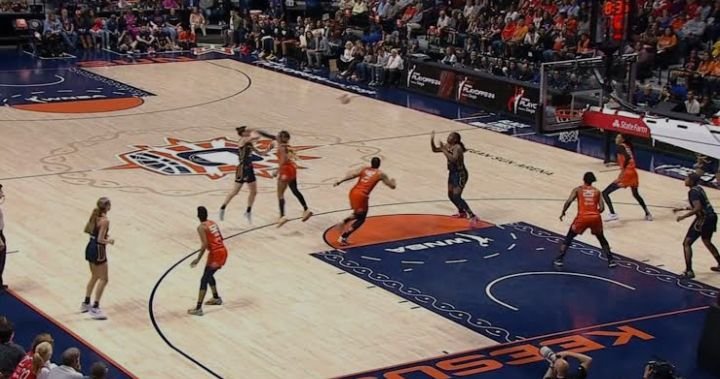Study Reveals Racial Bias in Angel Reese-Caitlin Clark Debate, Examines Social Media’s Role in Shaping Public Opinion

A recent study has sparked conversation about the racial bias that may be influencing the ongoing debate surrounding LSU’s Angel Reese and Iowa’s Caitlin Clark. The two standout college basketball players have been at the center of controversy following their interactions during the NCAA women’s basketball tournament, but the study suggests that race and social media dynamics are playing a significant role in shaping public perception.
The debate began when Reese, known for her fiery competitive spirit, engaged in celebratory trash talk during the national championship game against Clark’s Iowa team. While some fans and commentators defended Reese’s actions as part of her athletic persona, others criticized her for being disrespectful. On the other hand, Clark, who had also made waves for her bold play during the tournament, received far less criticism for similar on-court behavior.
The study suggests that this disparity in reaction is rooted in racial bias, with Reese, a Black player, facing more harsh judgment for displaying confidence and energy compared to Clark, a White player. Researchers argue that Reese’s actions were interpreted through a racial lens, with her behavior being viewed more negatively than Clark’s, despite their comparable conduct. This highlights a broader issue of how athletes of different races are treated when they express themselves on the court.
Furthermore, the study examines how social media platforms have amplified these disparities. Social media allows for immediate and widespread dissemination of opinions, and in this case, it has become a breeding ground for racial stereotypes and biased commentary. The viral nature of the debate has led to an environment where athletes’ actions are scrutinized and amplified, often with little room for nuance or understanding. As users express their opinions, a mix of support and criticism floods platforms, influencing the public’s perception of the players involved.
The study also points to the role of social media in shaping the discourse surrounding women’s sports, which often get overshadowed by their male counterparts. Reese’s experience exemplifies how race and gender intersect in the world of sports, creating additional challenges for female athletes who break traditional molds.
As social media continues to shape how athletes are viewed, experts suggest that a shift in public mindset is needed—one that considers the complex intersections of race, gender, and competition. The debate between Angel Reese and Caitlin Clark highlights not just a rivalry on the court, but a larger conversation about the changing dynamics of sports culture in the digital age.
